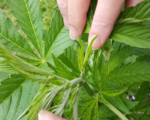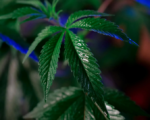The Texas House has taken a decisive step toward tightening regulations on hemp products, passing a bill that could spell the end for the state’s booming cannabis-derived product industry.
On May 21, the Texas House voted overwhelmingly to approve an amendment to Senate Bill 3, which will effectively ban all consumable hemp products containing any amount of THC or other intoxicating cannabinoids. This bill has sparked intense debate, with proponents arguing that it will safeguard public health and safety, while opponents warn that it could decimate a multibillion-dollar industry in the state.
A Move to Ban THC: What’s at Stake?
The Texas hemp industry, valued at a staggering $8 billion and employing around 50,000 workers, has become a cornerstone of the state’s economy in recent years. Senate Bill 3, which had already passed the Texas Senate in March by a 24-7 vote, aims to halt the production of hemp products that contain any psychoactive cannabinoids, like THC.
The bill seeks to limit the manufacturing of hemp products to those containing only nonintoxicating cannabinoids such as CBD (cannabidiol) and CBG (cannabigerol). If signed into law, this would mean the end of a vast market for THC-infused consumables, including products like edibles, beverages, and vapes.
Proponents of the bill, including Representative Tom Oliverson, argue that it’s a necessary step to eliminate “legal gray zones” that have allowed products containing even small amounts of THC to slip through the cracks. According to Oliverson, who offered the amendment to the bill, “If it gets you high, it is not legal anymore.” His stance is clear: “We are not banning hemp. We are banning high.”
This sentiment was echoed throughout the debate on the House floor. Oliverson, who is also a board-certified anesthesiologist, emphasized that the amendment would not affect the sale of industrial hemp or nonintoxicating products like CBD and CBG. However, THC-based products, no matter the form, would be prohibited under the new law.

A Bitter Debate: The Road to the Amendment
The bill was not passed without a fight. The Texas House State Affairs Committee had originally crafted a substitute to Senate Bill 3 that would have established a more stringent regulatory framework for hemp products containing THC, rather than banning them outright. This proposal would have allowed for continued sales of THC products, albeit under tighter restrictions.
However, Oliverson was not willing to entertain this alternative. During the lengthy floor session on May 21, he insisted that the state needed to take a hard stance on THC products, and he argued that the health and safety of Texans was at risk from a marketplace that lacked clear oversight. “We need to draw a clear line,” he said. “If it’s intoxicating, it’s not legal anymore.”
This harsh stance has divided lawmakers and industry experts alike. Some fear the bill’s potential economic impact, as businesses that manufacture, distribute, and sell THC-based products will likely be forced to close or relocate. The hemp industry in Texas has enjoyed rapid growth since the state legalized hemp cultivation in 2019, with businesses relying on both the medical and recreational marijuana markets. A ban on THC products could severely hurt the livelihoods of thousands of Texans.
Economic and Job Impact: The Fallout for Texas Workers
The bill’s passage has raised alarms among the thousands of workers employed in the hemp sector. With an estimated 50,000 individuals working in hemp-related industries across the state, a ban on THC-infused products would disrupt an enormous segment of the workforce. The Texas Hemp Industries Association (THIA) has been vocal in its opposition to the bill, warning that the move could devastate a rapidly growing market that has created jobs, fostered innovation, and drawn investment into the state.
Industry experts are also concerned about the potential for job losses in ancillary sectors, such as packaging, distribution, and retail. Many hemp companies have already made significant investments in infrastructure to meet the demands of a burgeoning market, and a sudden shift in regulations could leave these businesses stranded.
While the focus of the debate has been on the health and safety concerns associated with intoxicating products, critics of the bill argue that it could hurt Texas’ reputation as a business-friendly state. By restricting an industry that has created significant economic value, they warn that the state risks losing both revenue and jobs to other states with more lenient cannabis laws.
What’s Next? The Future of Hemp in Texas
The bill’s next step is to move to the Texas Senate, where it will be debated and voted on in the coming weeks. If the bill clears the Senate, it will then be sent to Governor Greg Abbott’s desk for approval. Abbott has yet to weigh in on the proposed ban, but if it is signed into law, Texas could soon be one of the strictest states when it comes to hemp and cannabis-derived products.
For now, those in the hemp industry are holding their breath, uncertain of what the future holds. While the push for stricter regulations may gain more traction in the coming months, it is clear that the debate over the fate of the Texas hemp industry is far from over.
Maria Garcia is an award-winning author who excels in creating engaging cannabis-centric articles that captivate audiences. Her versatile writing style allows her to cover a wide range of topics within the cannabis space, from advocacy and social justice to product reviews and lifestyle features. Maria’s dedication to promoting education and awareness about cannabis shines through in her thoughtfully curated content that resonates with both seasoned enthusiasts and newcomers alike.








